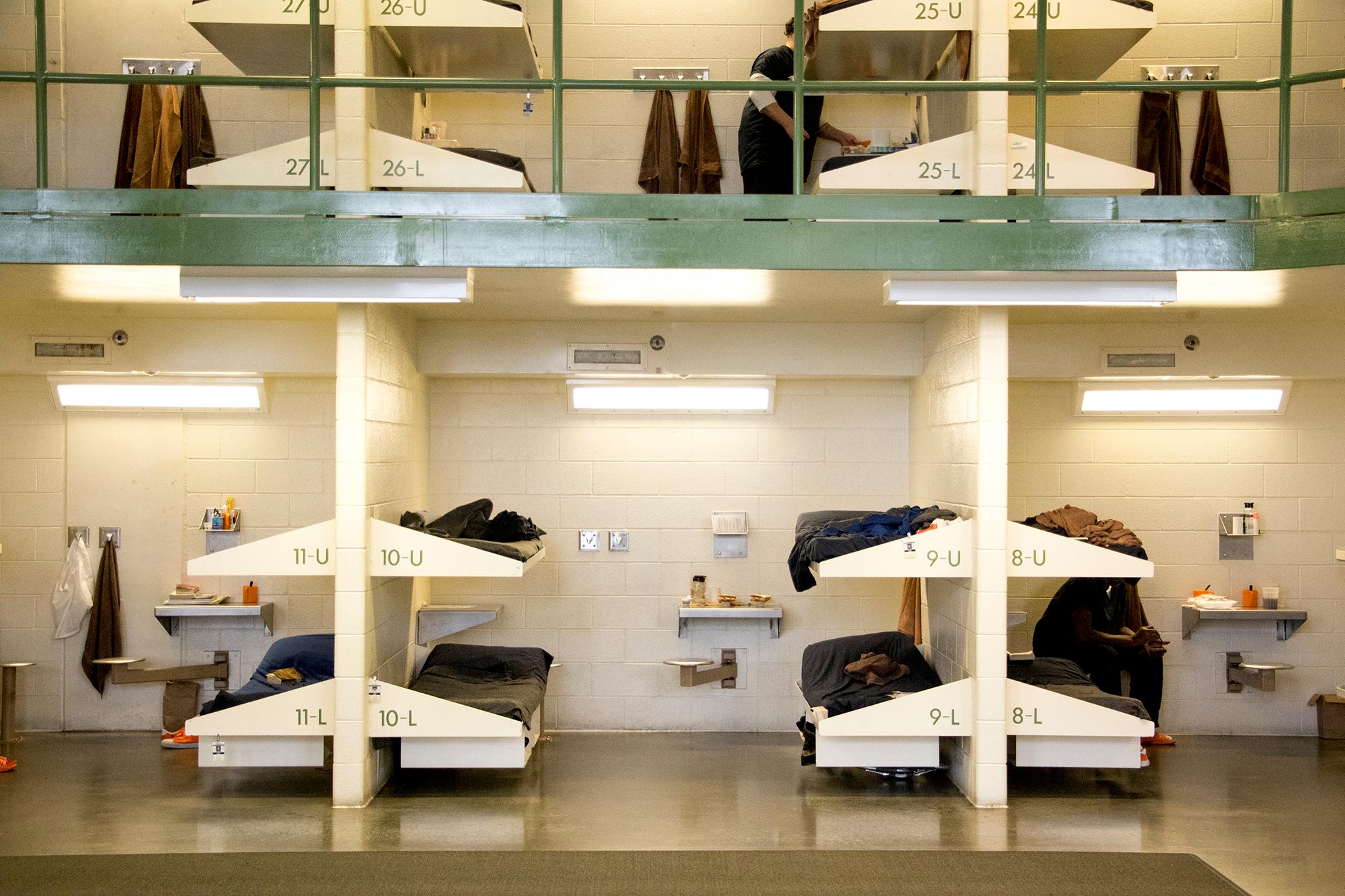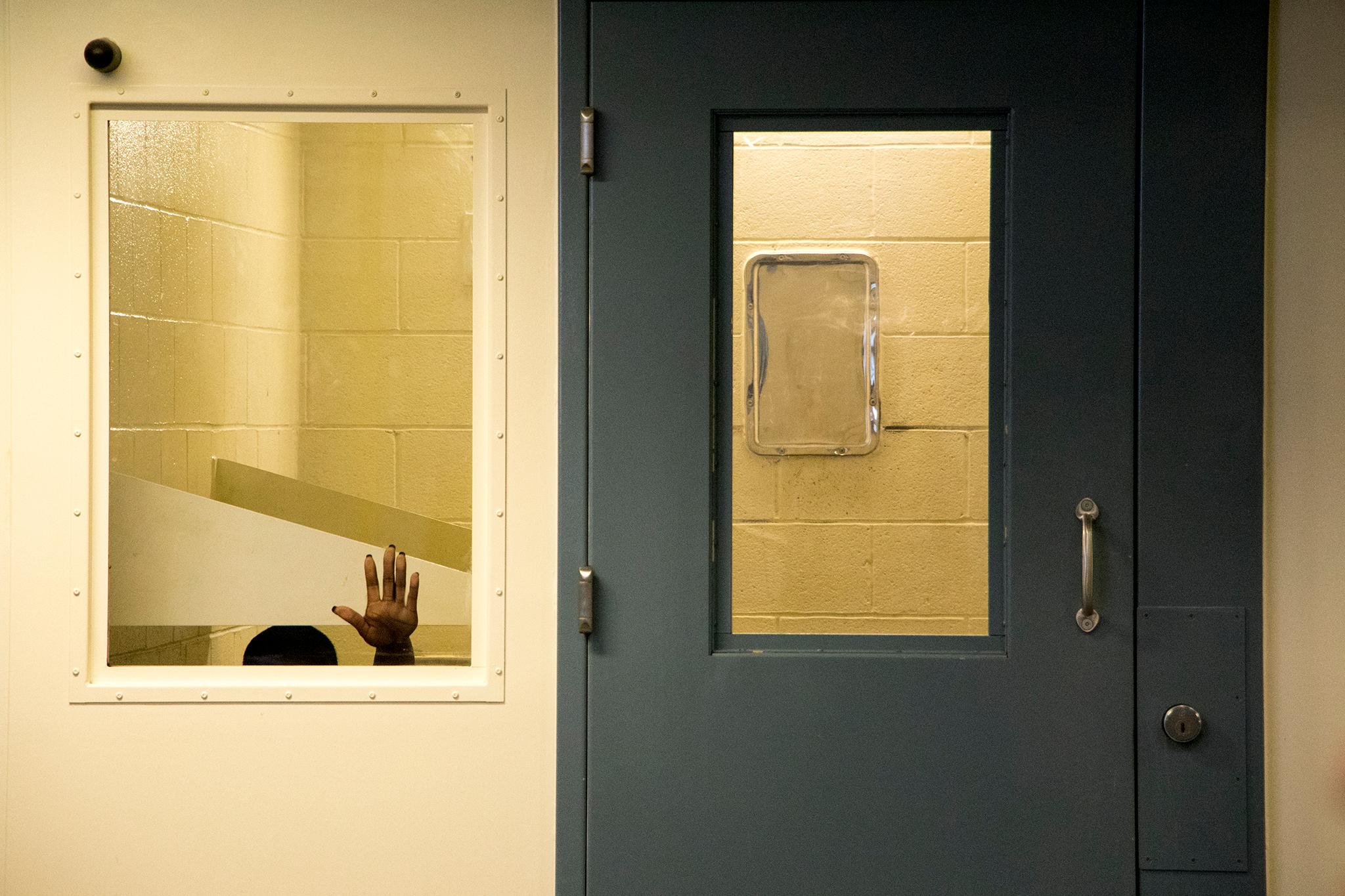When Rhonda Kelly joined the Aurora fire department in 2000, she recalled that old timers would talk about "that call," the one big emergency that still left a mark on their memories. But in her 17 years working as a firefighter and paramedic, those calls turned out to be more frequent than once-in-a-lifetime events.
"After a few years it got to be that call was the call you get every couple years," she said. And now, that kind of emergency that once defined a career seems to be in regular rotation.
Advocates for firefighters, EMTs, police and sheriff's deputies (who run Denver's jails) say burnout, substance abuse and trauma have become big issues, and some have sounded the alarm that they need more funding and support for mental healthcare. But first responders and deputies aren't alone in needing more care. People experiencing extreme breakdowns in Denver (especially poor people) often end up in jail or in an emergency room, places that were never designed to handle broad populations dealing with addiction or mental illness.
If the city could create a new kind of facility that was meant to deal specifically with these problems, Kelly said, people in crisis would be better served and first responders and jail staff might have to deal with less trauma.
Initiated Ordinance 301, which appears on Denver's ballot this year, is one group's answer. The people behind the initiative marketed as Caring 4 Denver hope it will start moving the city toward improved care for both emergency workers and the people they serve, though even some supporters are skeptical that more money will result in better circumstances.
The measure aims to raise $45 million by adding a quarter-of-a-percent tax on sales – 25 cents on a $100 purchase – that would be pooled for use in mental health services. In the first two years, 20 percent of that money would go into a fund for a new mental health center, then 10 percent of that fund would be earmarked for the facility in following years. Up to five percent could be used for program administration, and the rest could be doled out as grants to any organization needing more mental health support.
Growing city, growing trauma
Today, Kelly works with the University of Colorado's National Mental Health Innovation Center where she's an advocate for mental health services for first responders. She said the metro area's growth has played into an increase in traumatic situations that first responders have to deal with in their work.
"Society itself is just amping up. We’re doing more, there’s more density, there’s more interpersonal violence, and emergency response is reflective of that," she said.
And the people who may have been in severe emotional breakdowns that EMTs, police or firefighters respond to might end up in jail.
"Our facilities are not designed for mental health care," said Michael Jackson, president of the Fraternal Order of Police union that oversees Denver sheriff's deputies who work in the city's jails. But he told Denverite that the bigger problem is overcrowding.
"There are too many people in jail," he said. "We’re fucking bleeding out."
At most, Denver jails can hold 2,330 inmates at one time. Out of 98 days listed on the Denver Sheriff Department website between October 2017 and March 2018, jail populations only dipped below 2,000 people on just 6 days.
While the Denver Sheriff's department held 25 trainings to teach deputies how to respond to mental health first aid situations last year, Jackson said the officers he represents still struggle to keep up. That, in turn, has created more stress on the job.
State House Rep. Leslie Herod, who represents Denver, has led the charge on the initiative and told Denverite that a lack of mental healthcare and bulging incarceration rates are interconnected. Caring 4 Denver could only ease jail populations by offering an alternative place to bring people suffering a breakdown, though Herod said she'll be working on other efforts like bail bond and sentencing reform during the next legislative session.
"We cannot incarcerate ourselves out of this problem," she told Denverite, and added that she's spoken to representatives from all over the city who repeated that sentiment. Both for Denverites dealing with mental health episodes and the emergency workers who likely respond in their moments of need, she said, "We’re not doing enough to take care of our own."

Raising money is one thing, but how can you ensure it goes to the right place?
While the Denver Fraternal Order of Police branch has endorsed Herod's initiative, Jackson will be keeping a close eye on how it rolls out.
"Everybody's going to be in the pool," he said, since there's so much need in the city for mental health support. He's concerned that "self-serving" interests might shift dollars away from where they're needed most, and hopes program managers "keep the politics out of it" if the initiative passes.
Herod said funds would be allocated by way of a 13-member board. 12 of those members would be appointed by elected city officials. The last, as dictated in the proposed ordinance, would be Denver's District Attorney.
"My priority is to ensure the most underserved communities or constituencies have access to opportunities," she said. "I do believe that our law enforcement officers is one of those groups."
Jackson's concern that politicians might skew the process, Herod said, would be checked by voters who keep those officials in office. But the need he sees for immediate resources in jails could come into conflict with other interests if board members decide to place a higher priority on prevention.
Andrew Romanoff, former Colorado Speaker of the House and current president and CEO of Mental Health Colorado, said there's already a lot of money in mental health programming around Denver, it's just that "we’re spending money in the wrong places right now."
The misdirection he sees is mainly to jails, turning them into "warehouses for people with mental illness or drug or alcohol addiction." He'd like to see more money go toward preventative measures, like adding services to schools, that would take care of issues before they develop. While the criminal justice system presents the most obvious and expensive example of how mental healthcare funding has floundered in Denver, there are many other sectors that need help.
"With every dollar, you’re asking somebody to spend a dollar that could have been spent somewhere else," Romanoff said. "The challenge is that mental illness ripples across every part of the budget, every corner of colorado, every family in the state."
Herod said the 5 percent cap on administrative spending will ensure, at least, that the lion's share of the fund goes directly into the community.
"We’re not creating a fiefdom or a direct service agency," she said. And the ordinance should create a board that represents the community, which is important to ensure all of Denver's various needs are weighed evenly: "That is essential, we must have public accountability."
While, there may be a scramble to access this new cashflow at first, Kelly said many of these problems are interconnected and any help should get Denver moving in the right direction.
Right now, citizens without preventative or emergency services call 911 and enter an already overburdened emergency response system, and then may end up in jail where deputies are also in over their heads. If Denverites have better services, responders might have fewer episodes to deal with. If EMTs, firefighters, police and deputies have less stress on the job or if the initiative can fund mental health services for these workers, they, in turn, will be more effective in dealing with a crisis.
"It’s been a self-perpetuating downward spiral," Kelly said. "We’re working to reverse it and bring it back up."












